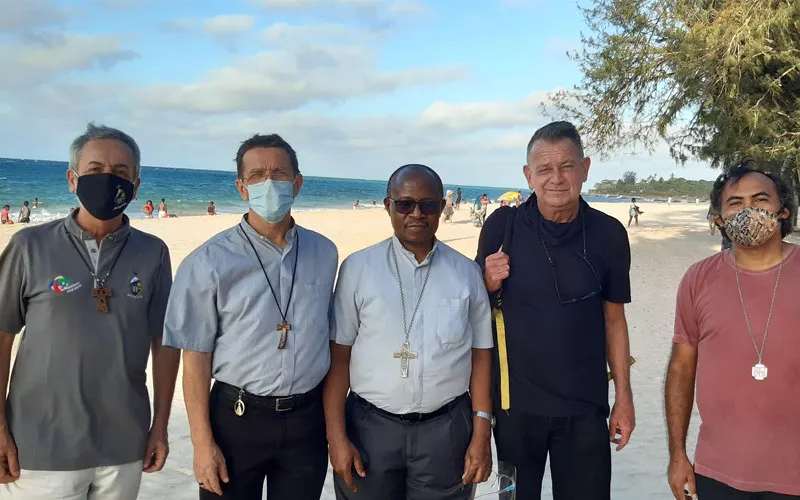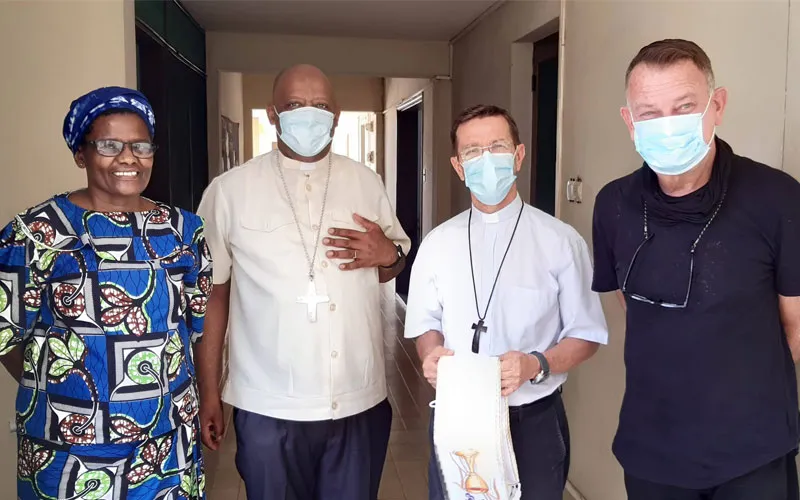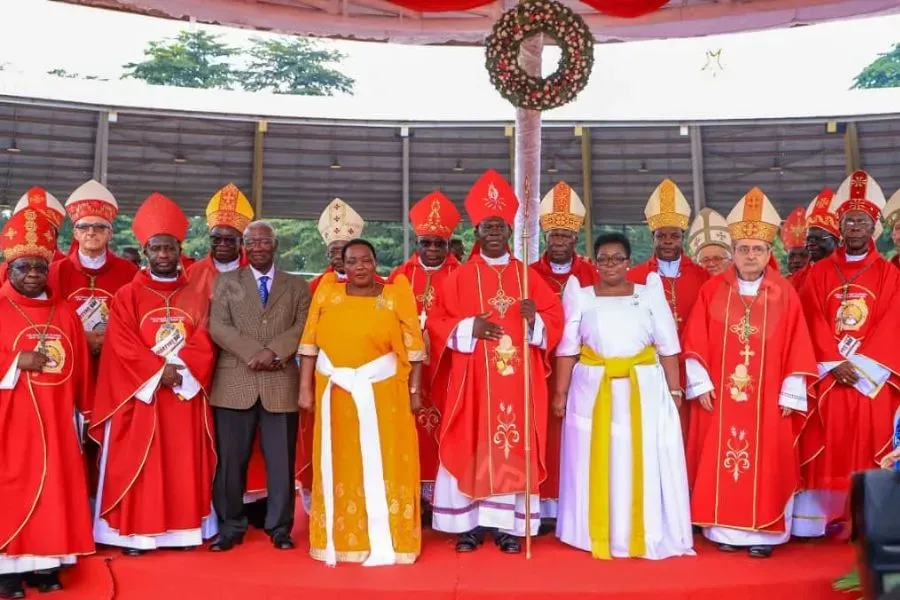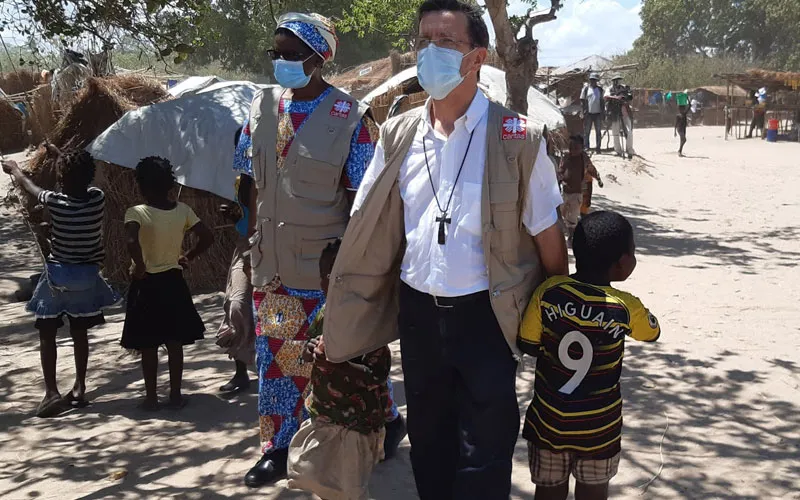Amid the insurgency, the SACBC delegation witnessed the “amazing work being done by Caritas Pemba,” which reaches out to the displaced families with food donations received from various people and organizations of goodwill from around the world, Bishop Jose Luis says in his December 17 blog post.
Besides the food donation, Caritas Pemba also offers the displaced families “tools that would allow them to build their future” such as seeds for planting, sewing machines, and tools for carpentry among others, the Bishop of Manzini has says in his blog post.
During the December 2-4 visit to Cabo Delgado, the delegation also saw “an interesting detail – a box where people can report any kind of abuse,” he recalls, adding that the box is meant for “vulnerable people at risk of experiencing more violence and abuse; therefore, a way is offered to them to anonymously share any type of abuse.”
The delegation also saw the “good shepherd heart” of 64-year-old Bishop Lisboa of Pemba who told them, “We now need to rethink completely our pastoral work in the diocese,” the Local Ordinary of Swaziland’s only Diocese, Manzini recalls.
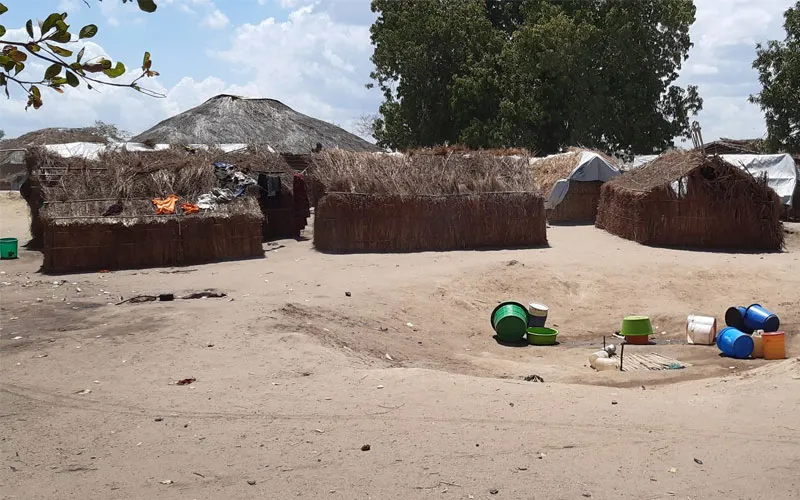
(Story continues below)
Through Bishop Lisboa’s initiative, “Priests, who now live in Pemba after their churches and homes have been destroyed, gather during the week, people arriving from a certain area to pray together or for the celebration of the Mass,” Bishop José Luís says in his December 17 blog post.
During the meetings, the Priests and the faithful “update each other on missing relatives, and plan for their future,” he adds in his post.
“We also witnessed the spirit of the people who do not give up and put the best of themselves to rebuild their future and the one of their families,” the Swaziland-based Prelate recalls.
For him, the three-day solidarity visit to the Bishop of Pemba was “particularly intense and the more we talked and visited, the more we remained with unanswered questions: why so much silence?”
“Not many seem to know about the tragedy affecting our neighboring country. Who is behind this war?” he poses and observes, “Any war makes us all poorer but someone clearly is benefiting from it.”
Bishop José Luís adds, “One fears that easy answers are offered to avoid going deeper in the causes... In the meantime, hundreds of thousands of families have lost everything and many more will experience the same fate unless something is done.”
